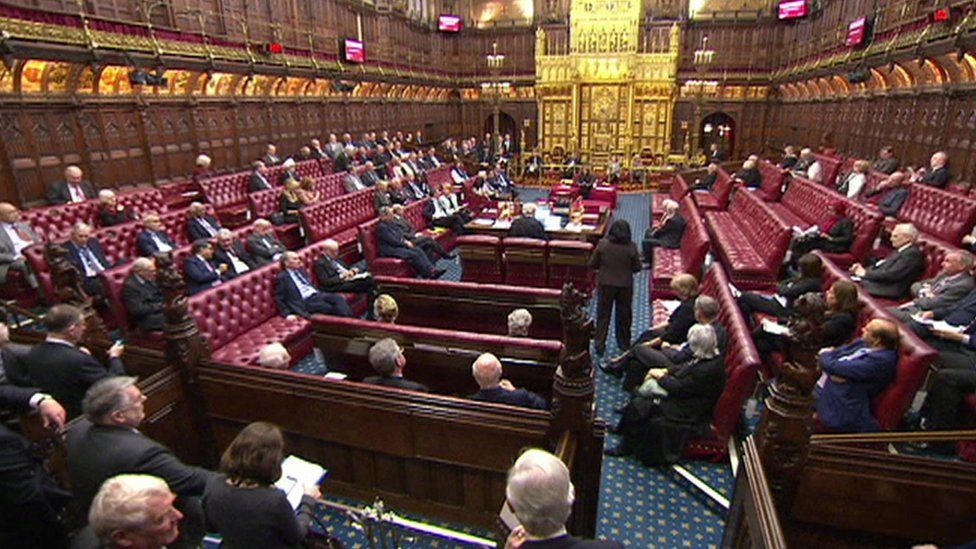Criticism as £30-a-week disability benefit cuts go ahead
- Published

Peers rejected the proposals on two occasions
Peers have backed down in their battle with MPs over cuts to disabled people's benefits after ministers invoked special powers to push them through.
The government was twice defeated in the House of Lords over a £30 a week cut to Employment and Support Allowance (ESA) for certain claimants.
But it is set to go ahead after peers deferred to the elected Commons.
Ministers claimed "financial privilege" to assert the Commons' right to have the final say on budgetary measures.
Ministers argue the changes will encourage people to get into work, but this is strongly disputed by opponents.
Baroness Campbell of Surbiton says "words fail her" over disability benefit cuts
The cuts in weekly support from £103 to £73, contained in the Welfare Reform and Work Bill, external, will apply to new ESA claimants in the work-related activity group, bringing the rate into line with Jobseeker's Allowance.
It will affect people who are deemed unable to work at the moment but capable of making some effort to find employment, including attending work-focused interviews and taking part in training.
Ministers argue that too few people in the category are moving into work and that while the lower benefit rate would save £55m in the first year, £60m would be spent on supporting claimants to take steps towards finding work.
'Harmful impact'
Work and Pensions minister Lord Freud acknowledged peers were only withdrawing their opposition with "great reluctance" after the Commons asserted financial privilege - its right to overrule any Lords proposal that has cost implications.
He insisted that the Lords had "discharged their duty" by scrutinising the bill to remove "unintended consequences" and sending back concerns for the Commons to reconsider.
But Paralympic gold medallist Baroness Grey-Thompson said she was disappointed such a "dreadful and punitive" part of the bill - which has been opposed by more than 30 charities - was going ahead.
"It may be seen as a victory in terms of voting numbers in the Commons but we can't forget there are many disabled people who will lose out," the crossbench peer said.
And Baroness Campbell of Surbiton, the co-chair of Parliament's All Party Disability Group, said she could not believe "the niceties of parliamentary protocol" had been allowed "to trump the lives of disabled people".
The peer, who was diagnosed with spinal muscular atrophy when she was a baby and has become one of the UK's leading disability rights campaigners, said there was little evidence to back up the government's claims and "environmental and attitudinal discrimination" was the main obstacle holding disabled people back in the workplace.
Disability rights campaigners Scope said the changes would have a "harmful impact" on half a million people.
- Published27 January 2016
- Published23 January 2016
- Published2 July 2015